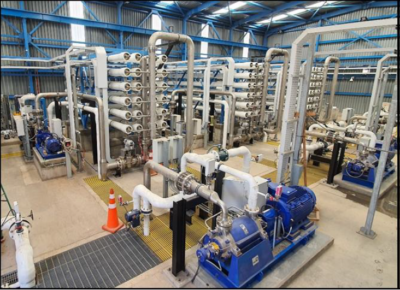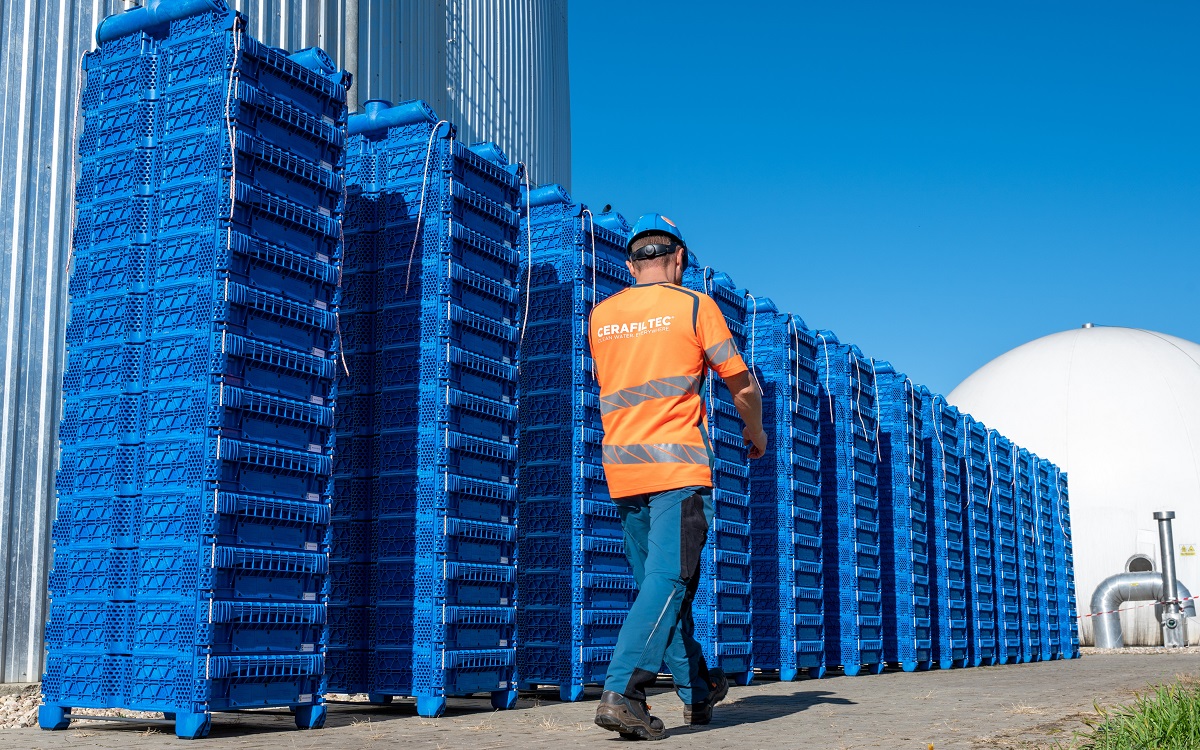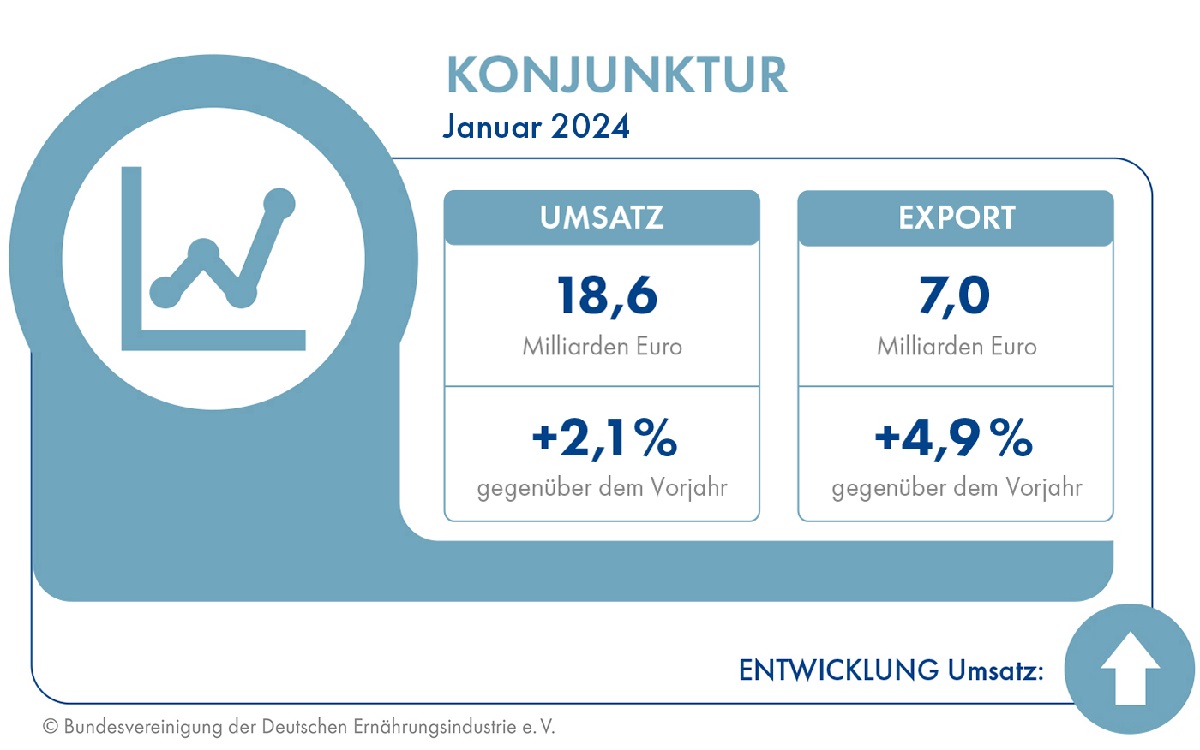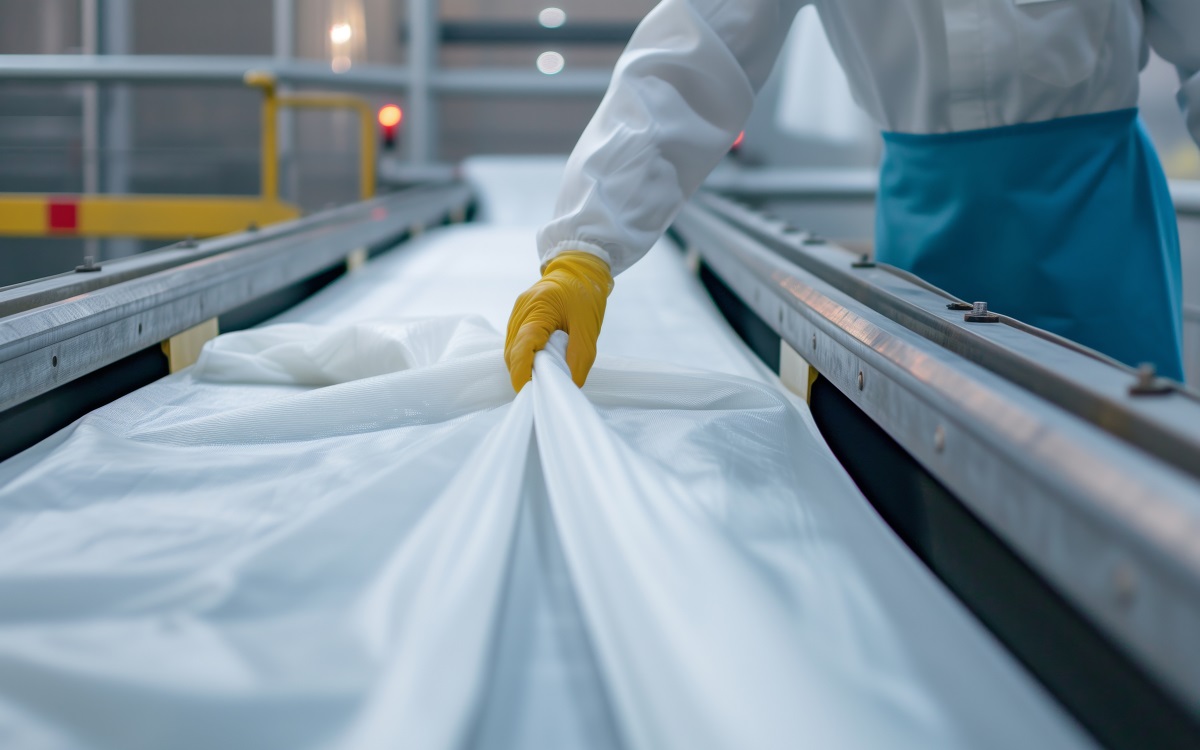Tocopilla, a dormitory Chilean city off the coast of the Pacific, needed a sustainable source of water. So far their water had been supplied from the surface sources from its surrounding mountains. The ecosystems of mountains are highly fragile and are easily disturbed by high rainfall, steep slopes, and erodible soils – the latter being a major pollutant of surface waters. To address the growing need for a sustainable drinking water supply for Tocopilla, a desalination plant was built to turn seawater into drinking water. For this, Nitto Hydranautics’ innovative membrane technology was used. Tocopilly is the first Chilean city that adopts a more sustainable approach to water consumption.
Reverse Osmosis system uses especially designed membranes
Seawater desalination can be challenging to do, as salt is very corrosive and can damage the devices designed to remove it. Reverse Osmosis systems use external pressure to send water through a series of membranes to reduce the salinity level.The high salinity level of seawater requires a higher level of pressure for proper permeability and salt rejection. This high pressure typically requires more energy and is more taxing on the membrane.
Nitto’s Hydranautics has developed reverse osmosis membranes specifically designed for seawater use. Mr. Renato Ramos, the Hydranautics Sales Director in Latin America reccomended the SWC6-LD membrane for the plant’s needs. “The SWC6-LD membrane has a unique combination of high flow, lower energy requirements, and low salt passage to support Tocopilla’s requirements.” The membrane was the optimal choice, and Tocopilla soon began enjoying the results.
Climate-independent drinking water supply
In addition to reducing the impact Tocopilla has on the freshwater system of the surrounding mountains, the systems built for the Tocopilla desalination plant provide a climate-independent source of drinking water to meet the current, and future, needs of the community. The daily desalinated water production reaches roughly 20 gallons per second, which equates to 1,711,835 gallons of drinking water per day (about 6,480 cbm/d). For the city of Tocopilla, with apopulation of roughly 25,000, this means the desalination plant will supply 100% of the community’s needs.
The sustainable viability of the desalination plant as a water source was assessed prior to plant construction. An environmental study was performed, as part of the engineering process, to determine the environmental impact of seawater purification using Hydranautics membrane technology.
The plant is dedicated to environmental protection and was diligent in mitigating the environmental impact of the desalination plant, particularly by the brine discharged into the sea. Modeling studies were conducted to evaluate the behavior of the marine currents in order to determine the best way to dilute the saltwater discharge as quickly as possible. The plant was able to create a method that preserved the same water quality in order to protect marine life.
An economic win for the city
In addition to the sustainable benefit of the desalination plant, in economic terms, the work associated with developing the plant contributed more than $4.6 million USD in local contracts for services associated with construction. Additionally, Good Neighbor Work Table, an association to create a permanent dialogue with the community, was established. The association contributed more than $210,000 USD to the community in the form of investment funds, trade development programs, and environmental education activities that focus on the production of desalinated water.
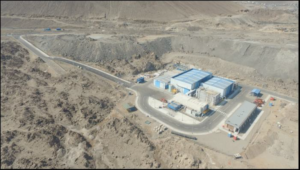
Tocopilla Desalination Plant
